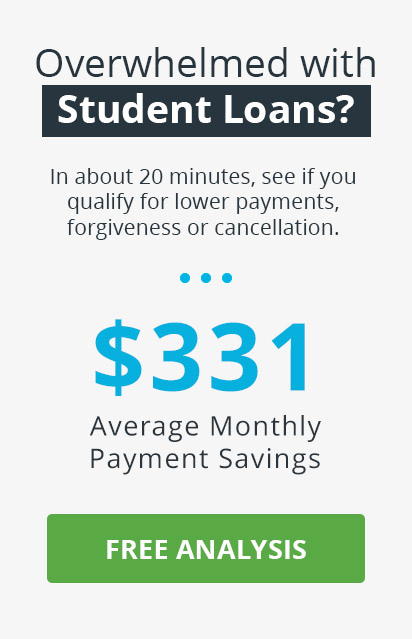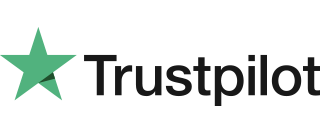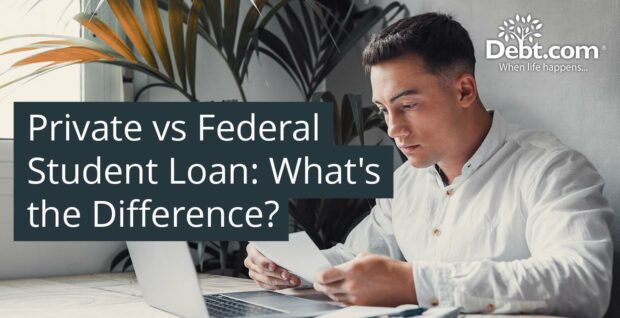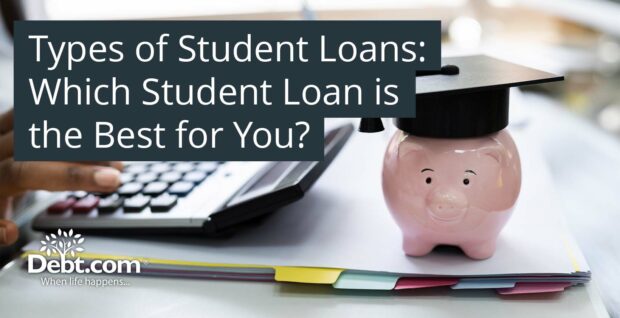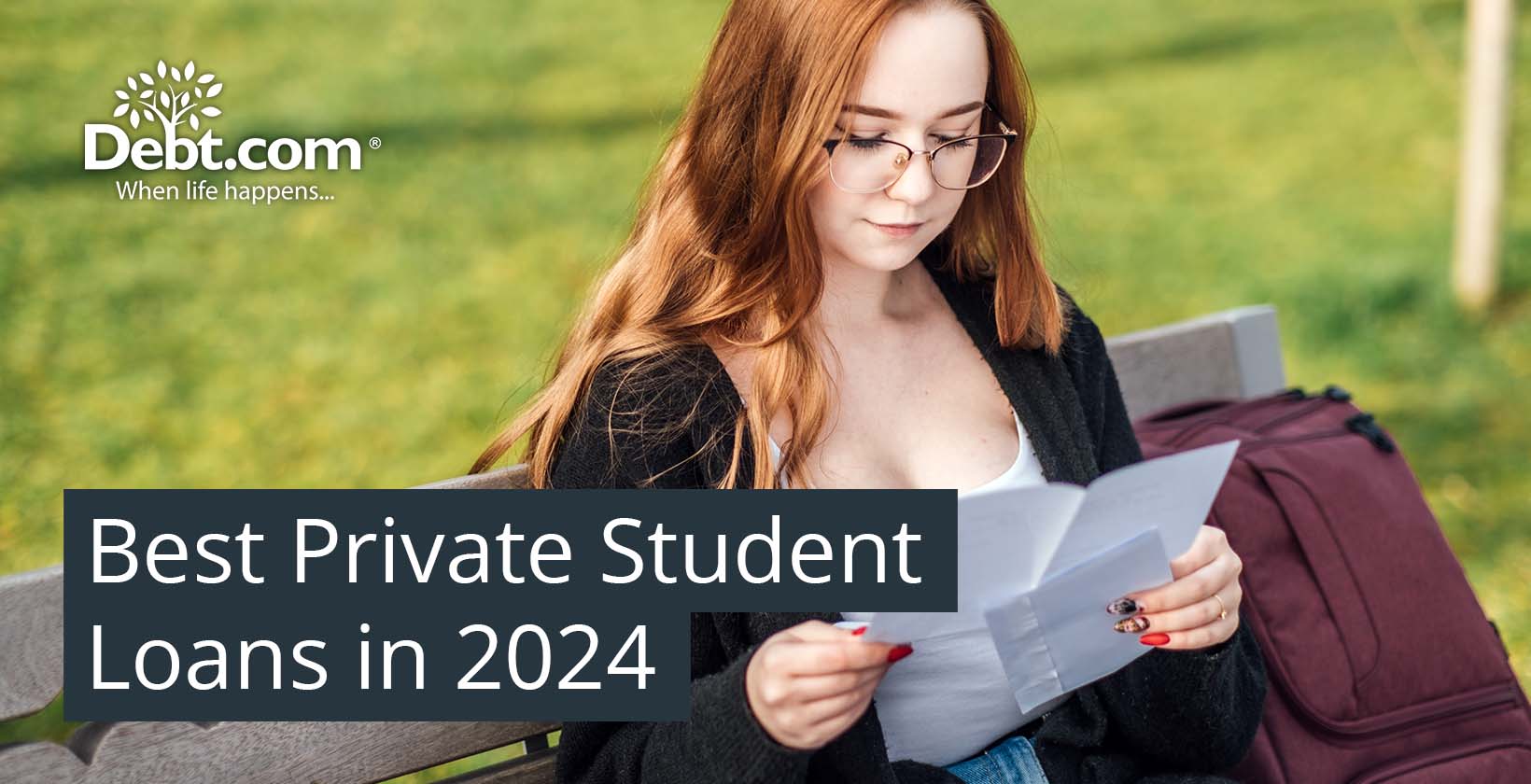
The best private student loans 2025 come from various lenders, each offering unique benefits and competitive rates. Private lenders like banks, credit unions, and Internet financial institutions offer student loans. Private student loans are based on creditworthiness and financial history, unlike federal student loans, which are government-funded and controlled. Notable best student loan companies include Sallie Mae, known for its range of undergraduate, graduate, and professional degree loans with fixed APRs from 4.15% to 15.49% and variable APRs from 5.37% to 15.70%. College Ave provides private student loans covering up to 100% of the school-certified cost of attendance with APRs from 3.99% to 17.99%. Ascent offers tailored loans with co-signed and non-co-signed alternatives.
SoFi stands out for its no-fee structure and flexible repayment arrangements, offering fixed APRs from 4.19% to 14.83% and variable APRs from 5.74% to 14.83%. Other top lenders include Earnest, known for its borrower-friendly features and competitive rates, and LendKey, which connects borrowers with community banks and credit unions. These lenders provide a range of loan amounts and terms, making it essential for borrowers to evaluate different options to find the best student loans for college. Managing private loans for college students is paramount in ensuring financial stability.
| Lender | Fixed APR | Variable APR | Maximum Loan Amount | Minimum Credit Score |
|---|---|---|---|---|
 | 3.49% to 15.49% | 4.92% to 15.08% | No maximum | Mid 600s |
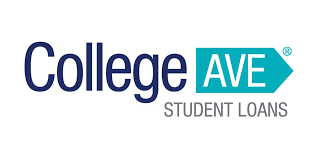 | 3.59% to 17.99% | 5.34% to 17.99% | 100% total cost of attendance ($150,000 for some degrees) | Mid 600s |
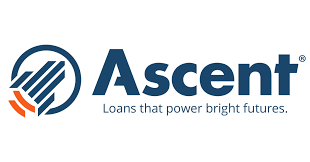 | 3.69% to 14.41% | 5.50% to 14.56% | $200,000 | Low to Mid 600s |
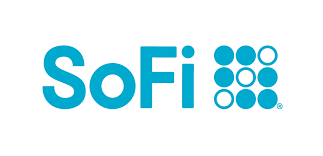 | 3.54% to 16.85% | 5.54% to 16.85% | No maximum | 640 |
 | 3.47% to 16.49% | 4.99% to 16.85% | No disclosed | 650 |
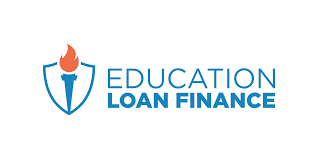 | 3.69% to 14.22% | 5.00% to 14.22% | Min $1,000 | 680 |
| 3.99% to 12.61% | 6.00% to 13.75% | $5,000 – $250,000 | 660 | |
 | 3.99% to 15.61% | 5.89% to 16.51% | Up to $350,000 (depending on degree) | Not Disclose |
| 4.24% to 14.02% | 4.81% to 14.39% | $99,999 annually $180,000 aggregate | Not Disclose | |
| 8.49% to 13.99% | NA | $3,001 – $20,000 per academic year | Not Disclosed |
1. Sallie Mae
Sallie Mae is a consumer bank offering private student loans for undergraduate, graduate, and professional degrees. Established in 1972 as a government-sponsored enterprise and privatized in 2004, Sallie Mae provides various student loan products and savings tools. It has an A+ BBB rating and a customer service rating of 3.8 out of 5. Sallie Mae’s student loans feature fixed APRs ranging from 3.49% to 15.49% and variable APRs from 4.92% to 15.08%, with loan terms of 10 to 15 years and no origination fees. Autopay enrollment qualifies borrowers for a 0.25% interest rate discount. However, Sallie Mae does not offer student loan refinancing and strongly encourages adding a creditworthy co-signer.
| Fixed APR | Variable APR | Minimum Credit Score | Loan Amount |
|---|---|---|---|
| 3.49% to 15.49% | 4.92% to 15.08% | Mid 600s | No Maximum |
2. College Ave
College Ave Student Loans is a Delaware-based online lender established in 2014, specializing in private student loans for undergraduates, graduate students, and parents. They offer loan amounts starting at $1,000, covering up to the full cost of attendance. Repayment terms range from five to 15 years, with fixed and variable APRs between 3.59% and 17.99%. There are no origination or application fees, and borrowers receive a 0.25% interest rate discount for enrolling in autopay.
Co-signers help secure lower rates, and a co-signer release option is available after meeting certain conditions. Refinance up to $150,000 ($300,000 for medical-related degrees) with similar terms and no prepayment penalties. Applicants are allowed to prequalify without affecting their credit score; most receive instant decisions.
| Fixed APR | Variable APR | Minimum Credit Score | Loan Amount |
|---|---|---|---|
| 3.59% to 17.99% | 5.34% to 17.99% | Mid 600s | $1,000 up to 100% of the school-certified cost of attendance |
3. Ascent
Ascent Student Loans offers private loans for undergraduate, graduate, and coding boot camp students, designed for borrowers who do not qualify for other financial aid. Ascent is not a direct lender; loans are issued by the Bank of Lake Mills and serviced by Launch Servicing. Loans are available in 50 states with options for co-signed and non-co-signed loans, where co-signed loans offer lower rates. Loan amounts range from $2,001 to $200,000, with varying repayment terms and interest rates.
Unique features include 1:1 student success coaching, a 0.25% autopay discount, a 1% cash-back graduation reward, and a nine-month grace period after graduation. Eligibility requires enrollment in one of Ascent’s partner schools and meeting income and credit requirements. The application process involves prequalification, selecting a loan, waiting for school certification, and signing the loan agreement. Ascent provides support via phone or email and customer service via Launch Servicing.
| Fixed APR | Variable APR | Minimum Credit Score | Loan Amount |
|---|---|---|---|
| 3.69% to 14.41%* | 5.50% to 14.56%* | Low to Mid 600s | $2,001 up to the total cost of attendance, to a maximum of $200,000 |
4. SoFi
SoFi, founded in 2011 by Stanford business school students, offers private student loans and refinancing for undergraduate, graduate, law, MBA, health profession, and parent loans. It covers up to 100% of the school-certified cost of attendance, with loan amounts starting at $1,000. The service features no fees and a soft credit pull for prequalification. SoFi provides four repayment options and interest rate discounts for autopay and SoFi members. SoFi loans are ideal for borrowers seeking an online application process and a no-fee loan structure.
| Fixed APR | Variable APR | Minimum Credit Score | Loan Amount |
|---|---|---|---|
3.54% to 16.85%* | 5.54% to 16.85%* | 640 | $1,000 up to 100% total cost of attendance |
5. Earnest
Earnest, established in 2013, offers private student loans and refinancing options for college and graduate students. It features flexible loan terms and competitive interest rates without origination, application, or late fees. Earnest includes a rate match feature for in-school loans and provides a nine-month grace period post-graduation, surpassing the standard six months. Borrowers are allowed to skip one payment per year.
Applicants or co-signers need a minimum FICO credit score of 650; the service is unavailable in Nevada. Earnest’s no-fee structure and borrower-friendly features have made it a top-ranked choice for private student loans for two consecutive years.
| Fixed APR | Variable APR | Minimum Credit Score | Loan Amount |
|---|---|---|---|
| 3.47% to 16.49% | 4.99% to 16.85% | 650 | $1000 up to 100% total cost of attendance |
6. LendKey
LendKey connects borrowers with community banks or credit unions for student loan refinancing, catering to borrowers who prefer not to work with large banks. It offers refinancing options with fixed APRs from 3.99% to 12.61% and variable APRs from 6.00% to 13.75%. A key advantage is its extended forbearance period of 18 months for 15- and 20-year loan terms, which is longer than many lenders offer. Borrowers check eligibility and potential rates without a hard credit check, ensuring no impact on their credit score. However, LendKey loans are unavailable in Maine, Nevada, North Dakota, Rhode Island, and West Virginia, and refinancing is only available for borrowers with a degree or international students.
The platform does not support biweekly payments via autopay. LendKey is best suited for borrowers earning an average annual income of $75,000, making it accessible for borrowers not earning six figures. It is advisable to compare multiple lenders before refinancing to secure the best rate and terms.
| Fixed APR | Variable APR | Minimum Credit Score | Loan Amount |
|---|---|---|---|
| 3.99% to 12.61% | 6.00% to 13.75% | 660 | $5,000 – $250,000 |
7. Education Loan Finance (ELFI)
Education Loan Finance (ELFI), operated by Tennessee-based SouthEast Bank since 2015, provides private student loans and refinancing options for private and federal student loans. ELFI is noted for its high customer service ratings (4.8 out of 5) and affordability (4.7 out of 5). It offers competitive fixed APRs from 3.69% to 14.22% and variable APRs from 5.00% to 14.22% for private student loans.
ELFI operates in all U.S. states and Puerto Rico, with no origination or application fees. Borrowers must have a minimum FICO credit score of 680 and refinance at least $10,000. ELFI does not offer a co-signer release option. ELFI is well known for its low rates and dedicated student loan advisors. However, refinancing federal student loans means losing federal protections, such as income-driven repayment plans and loan forgiveness programs.
| Fixed APR | Variable APR | Minimum Credit Score | Loan Amount |
|---|---|---|---|
| 3.69% to 14.22% | 5.00% to 14.22% | 680 | $1000 up to 100% total cost of attendance |
8. Citizens
Citizens Bank offers private student loans and refinancing options with competitive terms. The Citizens Bank of Rhode Island was founded in 1828 and provides various financial products, including student loans. The private student loans feature fixed APRs from 3.99% to 15.61% and variable APRs from 5.89% to 16.51%, with loan terms of 5, 10, and 15 years. Loan amounts range from $1,000 to $350,000, with a lifetime aggregate limit of $150,000 for undergraduate and graduate degrees. The bank offers a 0.25 percentage point discount for automatic payments and an additional 0.25 percentage point loyalty discount for existing customers.
International students can apply with a U.S. co-signer. Citizens Bank does not disclose specific credit score requirements, focusing on multiple factors for loan approval. The application process takes two to four weeks, and borrowers are allowed to choose interest-only, complete, or deferred payments while in school. Customer service includes live chat, a phone hotline, and email support. Citizens Bank is BBB-accredited with an A+ rating and has received positive feedback for its comprehensive services and flexible repayment methods. However, loans are not available for two-year or for-profit institutions.
| Fixed APR | Variable APR | Minimum Credit Score | Loan Amount |
|---|---|---|---|
| 3.99% to 15.61% | 5.89% to 16.51% | Not disclosed | $1,000 to $350,000 |
9. Custom Choice
The Custom Choice Loan provides a low-cost student loan option with competitive features. It offers fixed APRs from 4.24% to 14.02% and variable APRs from 4.81% to 14.39%, with repayment terms of 7, 10, or 15 years. No fees and benefits include an auto-debit discount and a 2% graduation principal reduction. Borrowers are allowed to apply with or without a cosigner, with cosigner release available after 36 months of consecutive on-time payments. The yearly loan limit is $99,999, with a maximum aggregate student loan debt of $180,000 and a minimum loan amount of $1,000. The no fees and graduation rewards make the loan a strong competitor in the student loan market.
| Fixed APR | Variable APR | Minimum Credit Score | Loan Amount |
|---|---|---|---|
| 4.24% to 14.02% | 4.81% to 14.39% | Not Disclose | $1,000 to $180,000 |
10. Funding U
Funding U offers private student loans for undergraduate students without a co-signer or established credit. These loans are based on academic performance and future income projections rather than credit history. Funding U provides loans up to $20,000 with terms of five or ten years and fixed APRs ranging from 8.49% to 13.99%. Applicants must be full-time students, U.S. citizens, permanent residents, or DACA recipients with a work-eligible Social Security number and attend an eligible school with a satisfactory GPA. The Funding U program offers flexibility to borrowers with difficulty repaying their loans.
| Fixed APR | Variable APR | Minimum Credit Score | Loan Amount |
|---|---|---|---|
| 8.49% to 13.99% | NA | Not Disclosed | $3,001 to $20,000 |
What are Private Student Loans?
Private student loans, or personal student loans, are provided by private lenders like banks, credit unions, and online lenders to help pay for education. These loans have variable interest rates and are distinct from federal student loans, which are backed by the government and have fixed interest rates and borrower protections. Private student loan interest rates and fees for private student loans are mainly determined by the borrower’s credit history or credit score. Borrowers applying for College loans secure lower rates and fees if they apply with a co-signer with good credit. Private student loans differ from federal student loans because they don’t offer protections or flexible payment terms like income-driven repayment plans or loan forgiveness choices. Private student loans cover the total cost of attendance and are used for various educational programs, including bachelor’s, master’s, and specialist degrees. Exploring government student loan options, scholarships, and grants is advisable before applying for private student loans.
How do Private Student Loans Work?
Private student loans work by providing financial aid provided by third-party institutions such as banks, credit unions, state agencies, and sometimes schools. They cover educational expenses when other aid like federal loans, grants, and scholarships are insufficient. Private loans have stricter eligibility criteria, including credit checks and require a co-signer if the borrower’s credit or income is insufficient.
Private student loans cover the total cost of attendance, including tuition, fees, room and board, books, and other necessities. Interest rates on private student loans are either fixed or variable. Fixed rates remain consistent throughout the loan term, offering predictable payments, while variable rates fluctuate, potentially leading to higher payments over time. Borrowers with higher credit scores receive better rates.
The application process involves submitting personal and financial information, such as credit scores, income verification, and details about the school and program. Approved funds are disbursed directly to the university to cover tuition and related expenses. Repayment terms range from 5 to 15 years, with some lenders offering interest-only payments while the student is still in school.
Private student loans lack federal protections like income-driven repayment plans, deferment, forbearance, or loan forgiveness. Assess the long-term financial impact and explore all other financial aid options before choosing a private student loan. Researching and comparing lenders is essential for finding the best rates and terms.
What are the Types of Private Student Loans?
The types of private student loans are listed below.
- State-specific loan programs: Some states offer private student loans through state agencies, such as the Bank of North Dakota, Iowa Student Loan (ISL) Education Lending, and the Rhode Island Student Loan Authority (RISLA). These loans are available for students attending colleges within the state or residents studying elsewhere. Eligibility criteria vary by state.
- Degree-specific loans: Lenders offer undergraduate and graduate student loans. Specialized loans are available for medical, dental, business, and law degrees. Degree-specific types of student loans offer benefits tailored to specific programs, such as extended grace periods for medical school loans.
- Bad Credit Loans: Federal student loans do not consider credit history, making them a viable option for those with poor credit. Private student loans for borrowers with bad credit have less stringent credit requirements but higher interest rates and fees. Co-signers can help secure better terms, as they share the responsibility for repayment.
- Income share agreements (ISAs): ISAs require borrowers to pay a percentage of their income over time rather than a fixed monthly amount, unlike traditional loans. Terms include a price floor and payment cap to ensure fairness.
- International Student Loans: International students are unable to access federal loans and must rely on private loans. Specialized lenders offer loans for international students, but a U.S. citizen co-signer is required. These loans come with higher-than-average interest rates due to the increased risk.
What are the Pros and Cons of Private Student Loans?
The pros and cons of private student loans are listed in the table below.
| Pros of Private Student Loans | Cons of Private Student Loans |
|---|---|
| Competitive Interest Rates: Borrowers with decent to excellent credit scores qualify for competitive interest rates, making financing more affordable compared to higher federal loan rates. | Variable Interest Rates: Private student loans feature variable interest rates that fluctuate based on market conditions. The variability leads to increased payments and higher long-term costs due to the uncertainty of future rates. |
| Simple Application Process: The application process for private student loans is expedited and available online, allowing completion in minutes from home. | Lack of Federal Protections: Private student loans lack the protections and benefits of federal loans, such as income-driven repayment plans, federal forbearance, deferment options, and loan forgiveness programs. |
| Flexibility in Loan Amounts: Private student loans cover up to 100% of the cost of attendance, including tuition, fees, lodging, and other educational expenses. | Potential for Higher Costs: Private student loans are more costly over time without government loan subsidies or income-based repayment plans. It is especially concerning for borrowers facing financial difficulties. |
| Variety of Repayment Options: Some private lenders offer flexible repayment options, such as interest-only payments during education or deferred payments until after graduation. | Credit Requirements: Private student loans are credit-based, unlike federal loans. Borrowers with poor or no credit history face higher interest rates or difficulty qualifying without a creditworthy co-signer. |
| Co-Signer Options: Private student loans allow a co-signer to help students with limited or lower credit histories secure loans with more favorable terms and reduced interest rates. | Limited Repayment Flexibility: Private student loans offer less flexible repayment terms than federal loans, with fewer options for forbearance or deferment. |
When to consider Applying for a Private Student Loan?
Consider applying for a private student loan when federal aid, scholarships, grants, and personal savings do not fully cover the cost of education. These loans are essential for filling gaps in funding for tuition, fees, room and board, books, and other related expenses. They are tailored to meet a student’s financial needs and educational goals, offered by banks, credit unions, and online lenders.
A key reason to consider a private student loan is to cover the full cost of attendance, as federal loans have borrowing limits. Private loans cover remaining expenses, avoiding out-of-pocket costs that strain finances. Student loans from private lenders are not based on financial need, making them accessible to students with various financial backgrounds.
Another advantage is the flexibility in loan amounts and repayment options. Repayment terms can range from 5 to 20 years or more, depending on the lender. Some loans offer interest-only payments while in school or deferred payments until after graduation, which helps manage finances.
Private student loans offer competitive interest rates for students with strong credit scores or creditworthy co-signers, sometimes lower than federal loan rates, leading to potential savings over the life of the loan. Making timely payments on private loans helps build credit, benefiting future financial endeavors.
Private student loans are available for various degree types, including undergraduate, graduate, and specialized programs, making them suitable for diverse educational paths.
Compare multiple lenders to assess terms and benefits, ensuring the loan aligns with the financial plan. Evaluating options helps make informed decisions and manage education costs effectively.
How does a Private Student Loan differ from a Federal Student Loan?
Private student loans differ from federal student loans in six key aspects. First, private loans issued by banks, credit unions, and other financial firms are determined by something beyond financial necessity and subject to a credit check (except for PLUS loans), requiring a co-signer for borrowers with poor or no credit history. Second, they have higher borrowing caps than federal loans but frequently come with variable interest rates and rigid repayment arrangements.
Third, federal loans are need-based, with approval decided through the Free Application for Federal Student Aid (FAFSA). Fourth, federal student loans, administered by the U.S. Department of Education, offer lower, fixed interest rates and more favorable terms, including flexible repayment options and potential for loan forgiveness programs. Fifth, federal loans include subsidized schemes where the government covers the interest while the student is in school, a benefit not available with private loans. Lastly, the difference of private loans and federal loans lies in the interest rates and repayment flexibility, with federal loans providing more accommodating terms.
Federal student loans are preferred due to their extensive advantages and protections. Private student loans fill financing shortages, especially for individuals with good credit and favorable conditions.
Who is Eligible for Private Student Loans?
A student who meets all key criteria set by private lenders, including enrollment status, credit score, income, age, and citizenship requirements, is eligible for private student loans. Students must be enrolled at an accredited institution, usually a four-year college, though some lenders accept enrollment in two-year community colleges and trade schools. Most lenders require half-time enrollment, although some offer loans for part-time or career-training students.
Creditworthiness is crucial; applicants need a satisfactory credit history. Co-signers with strong credit profiles are required because many students have limited credit histories. A mid-600s credit score is the minimum for qualification. Lenders require proof of sufficient income, either from the student or the co-signer, with some setting a minimum income threshold as low as $24,000 per year.
Loan funds must be used for qualified educational expenses, including tuition, fees, housing, meals, textbooks, and transportation. Lenders confirm these expenses with the student’s school’s financial aid office. Applicants must be U.S. citizens or permanent residents with a Social Security number and meet the minimum age requirement, generally 18, though some states require borrowers to be at least 19. International students qualify if they have a co-signer who is a U.S. citizen.
How to Get a Private Student Loan?
To get a private student loan, follow the ten steps listed below.
- Check eligibility requirements. Enroll in an accredited school. Confirm that borrowers are a U.S. citizen or permanent resident and that they are at least 18 years old. Prepare for income and credit verifications.
- Asses the credit score. Credit scores in the mid-600s or higher are necessary. Consider applying with a co-signer who possesses a strong credit profile if their credit history is restricted.
- Determine income. Lenders require a minimum income, which is as low as $24,000. A co-signer with a sufficient income assist if their income is insufficient.
- Understand qualified expenses. Tuition, fees, housing, transportation, meals, textbooks, and supplies are all covered by private student loans.
- Choose a lender. Conduct research and evaluate various lenders to identify the most favorable rates and terms. Considering lenders that provide loans based on factors other than credit, such as academic performance and prospective earning potential.
- Prepare the necessary documents. Acquire the requisite documentation, such as confirmation of enrollment, income, and identification. The financial aid office at an institution furnish details regarding the costs and schools that are considered acceptable.
- Apply for the loan. Submit the application form online or through the lender’s application process to apply for private student loans. Submit all necessary documentation to confirm borrower’s eligibility.
- Wait for approval. The lender takes into account the application and conduct a credit check. The lender verify the loan amount and costs by contacting the borrower school’s financial aid office if the application is approved.
- Understand the loan terms. Examine the loan’s interest rates, repayment terms, and associated fees. Determine whether to pursue fixed or variable interest rates based on the borrower’s financial circumstances.
- Receive the funds. The loan funds are to be disbursed to the chosen institution upon approval and certification. Any remaining funds are going to be allocated to borrowers for additional educational expenses after tuition and fees have been paid.
How are Interest Rates for Private Student Loans determined?
Interest rates for private student loans are primarily determined by the borrower’s credit score, the type of interest rate (fixed or variable), and market trends. The interest rates for private student loans vary significantly among lenders, unlike the interest rates for federal student loans, which are fixed.
Credit scores play a crucial role in determining rates. Higher scores lead to lower rates for lower-risk borrowers, while lower scores result in higher rates due to increased risk. Income and the debt-to-income ratio affect loan terms.
Rates are affected by market conditions; lower market interest rates mean lower private loan rates and vice versa. Fixed interest rates provide predictable monthly payments throughout the loan term, whereas variable interest rates start lower but increase over time based on market conditions.
Some lenders offer rate discounts for enrolling in automatic payments or having a strong credit co-signer. Comparing student loan interest rates and terms from multiple lenders helps borrowers find the best deal. Understanding these factors enables better decision-making and more favorable loan terms.
How to Compare Private Student Loans?
To compare private student loans, follow the five steps listed below.
- Research lenders. Search for reputable lenders, including banks, credit unions, and online lenders.
- Get quotes. Utilize tools to obtain personalized rate quotes from numerous lenders.
- Compare offers. Assess the loan amounts, APRs, repayment terms, and associated fees. Some loans hide origination and prepayment penalties. Comparing multiple lenders helps find and prevent these extra expenses, clarifying the loan cost.
- Check reviews and ratings. Read the reviews and ratings of other borrowers to gain insight into their experiences with the lender.
- Make an informed decision. Select the loan most suitable for borrower’s financial circumstances in terms of interest rates, repayment options, and borrower benefits.
Is it Important to Calculate the Cost of Private Student Loans?
Yes, it is important to calculate the cost of private student loans. These loans are a temporary solution when federal financial aid and other funding sources are insufficient. They have higher interest rates than federal loans, especially for borrowers with lower credit scores. Private student loans are not eligible for federal forgiveness programs, administrative forbearance, or income-driven repayment plans, unlike federal loans.
Comprehend the comprehensive cost of financing, which encompasses the principal and interest and any fees and the potential for variable interest rates to rise over time. Borrowers assess whether it is financially viable and worthwhile to incur additional debt to finance their education by computing these expenses. It enables them to compare the long-term impact of private loans against potential future earnings and career objectives. Calculating student loans ensures borrowers make informed decisions consistent with their financial situation and aspirations.
Where can you Get a Private Student Loan?
You can get a private student loan from the companies listed below.
- ISL Education Lending: ISL, formerly Iowa Student Loans, offers nationwide student loan refinancing via Reset Refinance Loans. It suits borrowers without a degree, those still in school, or medical residency. ISL allows refinancing before graduation and has a generous forbearance policy, offering up to 24 months of deferment for general and medical residency refinance or up to 84 months for in-school refinance. There is no minimum income requirement to qualify. Interest rates vary by product, and ISL includes biweekly autopay options.
- MEFA: MEFA offers student loans with low fixed APRs ranging from 5.75% to 8.95%. It provides multiple savings and college funding options, including a 529 savings plan and an Attainable Savings Plan. Applicants must meet Satisfactory Academic Progress (SAP), have no recent bankruptcy, foreclosure, or education loan defaults, be U.S. citizens or permanent residents, meet current credit approval standards, and be enrolled at least half-time in an eligible degree-granting school. MEFA charges no fees allows funds to cover past-due balances, but does not offer prequalification, hardship deferment, or forbearance, and has only one loan with co-signer release.
- Discover Student Loans: Discover offers loans for undergraduate, graduate, and professional degrees, including refinancing. Fixed APR ranges from 5.24% to 15.99%, and variable APR from 6.49% to 17.37%. Loans start at $1,000, covering up to the total cost of attendance. Discover has no application, origination, or late fees. It accepts co-signers, offers a 0.25% interest rate discount for autopay, and a 1% cash reward for students with a GPA of 3.0 or higher. Discover provides 24/7 customer service but does not offer forbearance or deferment alternatives and has received complaints about loan servicing and repayment difficulties.



